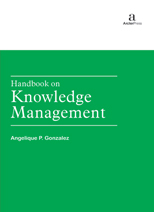Tab Article
The ability to manage knowledge is crucial in today‘s knowledge economy. The creation and diffusion of knowledge have become increasingly important factors in competitiveness. This introductory handbook covering the theories, frameworks, models, tools, and supporting disciplines that are relevant to both the student and the practitioner. The goal of this book is to provide a comprehensive overview of knowledge management by examining its objectives, scope, strategy, best practices, knowledge management tools, and so on. A brief history of knowledge management concepts is outlined, noting that much of KM existed before the actual term came into popular use. The lack of consensus over what constitutes a good definition of KM is addressed and the concept analysis technique is described as a means of clarifying the conceptual confusion that still persists over what KM is or is not. The multidisciplinary roots of KM are enumerated together with their contributions to the discipline.








